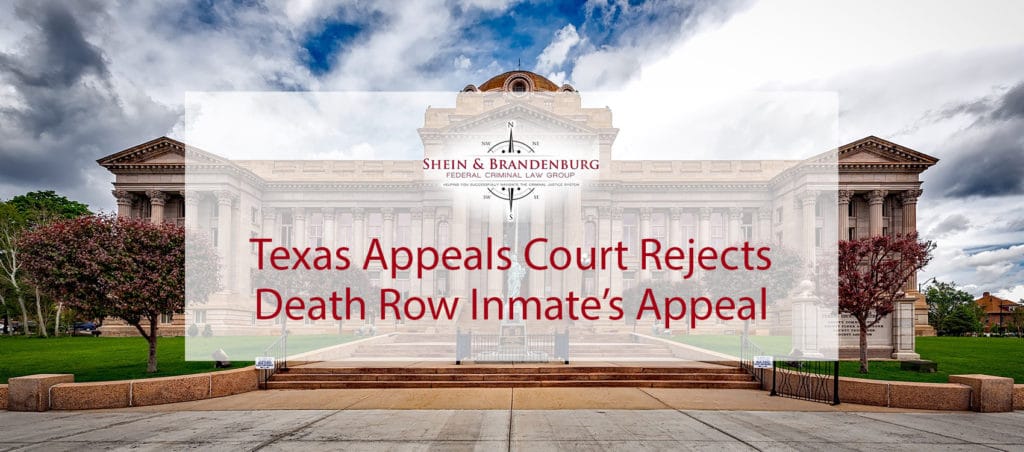Texas Death Row Inmate Denied Appeal
In May of 2018, a federal appeals court rejected a claim from a death row inmate in Harris County, Texas who was convicted of killing a law enforcement officer. The man was convicted after the 1998 crime of killing the off-duty police officer during a traffic incident that was part of a greater scheme to rob motorists. This case provides a strong example of the complicated nature of death row appeals.
How the Offense Occurred
On May 22, 1998, the Houston law enforcement officer left his home with his wife in a private vehicle to go to a sports bar. As the officer drove past a truck, driven by the defendant, something cracked the officer’s windshield. At first, the officer thought someone had thrown a rock at his car but then discovered that he had actually been fired upon. The officer turned around his vehicle and followed the defendant for several blocks until the two pulled beside each other. The officer exited his vehicle and approached the defendant who was still in his vehicle. The defendant told the officer that he had accidentally thrown something at the vehicle’s window. After the officer reached into his back pocket to retrieve his police identification, the defendant shot the officer in the head and fled the scene.
Previous Appeals in the Case
For many years, the defendant based appeals on arguments that he had received the assistance of inadequate legal counsel. In 2017, the Texas Supreme Court even called off the defendant’s execution just hours before the man was scheduled to die.
What is at Issue in the Current Appeal
The defendant’s most current appeal was based on the argument that his legal counsel at the trial level failed to present evidence from the defendant’s family and friends who did not believe that the defendant would be a danger in the future, which is an element that must be satisfied for a person to receive the death sentence in Texas. Instead, the appeal court passed the case down to a lower court, which found that the defendant’s arguments about poor legal representation during other steps in the process did not constitute the extraordinary circumstances required to win an appeal under the “catchall” part of Rule 60(b).
Understanding Rule 60(b)
Federal Rule of Civil Procedure 60(b) recognizes a narrow set of circumstances in which a person is able to obtain the court’s permission to reopen an otherwise final judgment. The rule allows the court to grant permission in any reason that “justifies relief,” which means that courts often have significant discretion in granting appeals under this rule.
Speak with a Seasoned Federal Criminal Appeal Attorney
Criminal appeals are one of the most complicated legal processes, which is why people who are interested in proceeding through this process obtain the assistance of top legal counsel. To make sure that you proceed through the criminal appeal process as smoothly as possible, do not hesitate to contact the Federal Criminal Law Center today.


